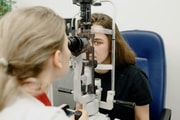Could a new $5 meal plan make healthy eating easier for Americans?
By
Veronica E.
- Replies 1
For many families, the rising cost of fast food has made even a simple burger and fries feel like a splurge.
But a new public health initiative aims to offer something different—nutritious, filling meals for less than the price of a Big Mac.
Robert F. Kennedy Jr., now serving as US Health Secretary, is making affordable, wholesome food a central part of his mission to improve the nation’s health.
His goal is to tackle the chronic disease crisis fueled by ultra-processed foods and to ensure that healthier options reach communities where fresh, nutritious meals are hard to find.
While details are still emerging, the plan is already sparking conversation about what’s possible—and what it could mean for millions of Americans.

The hidden cost of "cheap" food
Kennedy has made combating ultra-processed foods a centerpiece of his public health agenda, calling them “poison” and linking them to rising rates of chronic illnesses, particularly in underserved “food deserts.”
Speaking to Scripps News, he said:
“Cheap food is an illusion. If you say this food is cheap and you get diabetes from it, is it really cheap? We’re working all over the country in food deserts.”
Also read: What did RFK Jr. do to the CDC’s vaccine committee? Here’s how it affects you.
A new vision for affordable meals
According to Kennedy, his team is working with private companies to develop “very, very wholesome” meals for under $5.
“We looked at one company that we met with recently that can provide a very, very wholesome meal for under $5. A Big Mac costs, I think, $9 now,” he said.
The average price of a Big Mac meal in the US in 2024 was about $9.29, while a Big Mac alone cost $5.29, according to McDonald’s.
Prices vary by location, with some in New York charging as much as $8.69 for just the sandwich, according to Tasting Table.
Kennedy says the idea is to shift public health agencies away from promoting corporate profits and toward genuinely improving health.
“You’re going to see the markets respond, and you’re going to see better food going into these food deserts,” he told Scripps News.
Also read: Is your grocery cart full of these banned items? Find out which popular goods are affected!
Spotlight on Mom’s Meals
Earlier this month, Kennedy praised Mom’s Meals, a company providing $7-a-portion dishes to Medicaid and Medicare recipients, for offering meals “without additives” to sick and elderly Americans.
Their menu includes dishes like chicken bacon ranch pasta, French toast sticks with fruit, and ham patties.
However, an Associated Press review of Mom’s Meals menus, ingredient lists, and nutrition labels found these products to be heat-and-eat ultra-processed foods—the same kind Kennedy often blames for worsening public health.
Marion Nestle, a nutritionist and food policy expert at New York University, examined the menu for the AP and said the meals contain chemical additives not found in home kitchens, are often high in sodium, and in some cases have elevated sugar or saturated fat levels.
Mom’s Meals has defended its offerings, saying its products “do not include ingredients that are commonly found in ultra-processed foods” and avoid synthetic dyes, high fructose corn syrup, certain sweeteners, and synthetic preservatives banned in Europe.
Also read: Trump’s "MAHA food boxes" plan: What it could mean for seniors who rely on grocery aid
The problem with ultra-processed foods
Under Kennedy’s leadership, the “Make America Healthy Again” (MAHA) Commission has highlighted that nearly 70% of US children’s calories come from ultra-processed foods.
In an April 2025 study published in Metabolism, researchers found that individuals who ate the most ultra-processed foods had a 24% higher risk of developing diabetes than those who ate the least.
Kennedy warns this creates a costly cycle: “We are giving the poorest members of our society diabetes when they’re young, and then we’re paying for it later with Medicaid.”
Also read: What’s really in those $7 meals RFK Jr. supports? A closer look at Mom’s Meals
What comes next
Kennedy has not yet provided details about which meals will be offered, when they will roll out, or which companies will be involved.
For now, the plan remains an ambitious vision backed by the belief that healthy eating should be possible for every American, regardless of income or zip code.
“This country has lost the most basic of all freedoms, the freedom that comes from being healthy,” Kennedy said.
While the specifics of Kennedy’s $5 meal initiative remain unknown, the plan has put a national spotlight on the connection between diet, health, and affordability.
If successful, it could reshape how millions of Americans access nutritious food—especially in communities where healthy options have long been out of reach.
Read next: What’s next for federal health programs? Proposed cuts raise question

What does a wholesome meal look like in your household? Have you found ways to eat well on a budget, or noticed how much fast food prices have risen?
Share your thoughts and tips—we’d love to hear your ideas for making healthy eating a reality in every community.
But a new public health initiative aims to offer something different—nutritious, filling meals for less than the price of a Big Mac.
Robert F. Kennedy Jr., now serving as US Health Secretary, is making affordable, wholesome food a central part of his mission to improve the nation’s health.
His goal is to tackle the chronic disease crisis fueled by ultra-processed foods and to ensure that healthier options reach communities where fresh, nutritious meals are hard to find.
While details are still emerging, the plan is already sparking conversation about what’s possible—and what it could mean for millions of Americans.

Health Secretary Robert F. Kennedy Jr. has made reducing ultra-processed food consumption a key part of his public health agenda. Image source: YouTube / Fox News Clips.
The hidden cost of "cheap" food
Kennedy has made combating ultra-processed foods a centerpiece of his public health agenda, calling them “poison” and linking them to rising rates of chronic illnesses, particularly in underserved “food deserts.”
Speaking to Scripps News, he said:
“Cheap food is an illusion. If you say this food is cheap and you get diabetes from it, is it really cheap? We’re working all over the country in food deserts.”
Also read: What did RFK Jr. do to the CDC’s vaccine committee? Here’s how it affects you.
A new vision for affordable meals
According to Kennedy, his team is working with private companies to develop “very, very wholesome” meals for under $5.
“We looked at one company that we met with recently that can provide a very, very wholesome meal for under $5. A Big Mac costs, I think, $9 now,” he said.
The average price of a Big Mac meal in the US in 2024 was about $9.29, while a Big Mac alone cost $5.29, according to McDonald’s.
Prices vary by location, with some in New York charging as much as $8.69 for just the sandwich, according to Tasting Table.
Kennedy says the idea is to shift public health agencies away from promoting corporate profits and toward genuinely improving health.
“You’re going to see the markets respond, and you’re going to see better food going into these food deserts,” he told Scripps News.
Also read: Is your grocery cart full of these banned items? Find out which popular goods are affected!
Spotlight on Mom’s Meals
Earlier this month, Kennedy praised Mom’s Meals, a company providing $7-a-portion dishes to Medicaid and Medicare recipients, for offering meals “without additives” to sick and elderly Americans.
Their menu includes dishes like chicken bacon ranch pasta, French toast sticks with fruit, and ham patties.
However, an Associated Press review of Mom’s Meals menus, ingredient lists, and nutrition labels found these products to be heat-and-eat ultra-processed foods—the same kind Kennedy often blames for worsening public health.
Marion Nestle, a nutritionist and food policy expert at New York University, examined the menu for the AP and said the meals contain chemical additives not found in home kitchens, are often high in sodium, and in some cases have elevated sugar or saturated fat levels.
Mom’s Meals has defended its offerings, saying its products “do not include ingredients that are commonly found in ultra-processed foods” and avoid synthetic dyes, high fructose corn syrup, certain sweeteners, and synthetic preservatives banned in Europe.
Also read: Trump’s "MAHA food boxes" plan: What it could mean for seniors who rely on grocery aid
The problem with ultra-processed foods
Under Kennedy’s leadership, the “Make America Healthy Again” (MAHA) Commission has highlighted that nearly 70% of US children’s calories come from ultra-processed foods.
In an April 2025 study published in Metabolism, researchers found that individuals who ate the most ultra-processed foods had a 24% higher risk of developing diabetes than those who ate the least.
Kennedy warns this creates a costly cycle: “We are giving the poorest members of our society diabetes when they’re young, and then we’re paying for it later with Medicaid.”
Also read: What’s really in those $7 meals RFK Jr. supports? A closer look at Mom’s Meals
What comes next
Kennedy has not yet provided details about which meals will be offered, when they will roll out, or which companies will be involved.
For now, the plan remains an ambitious vision backed by the belief that healthy eating should be possible for every American, regardless of income or zip code.
“This country has lost the most basic of all freedoms, the freedom that comes from being healthy,” Kennedy said.
While the specifics of Kennedy’s $5 meal initiative remain unknown, the plan has put a national spotlight on the connection between diet, health, and affordability.
If successful, it could reshape how millions of Americans access nutritious food—especially in communities where healthy options have long been out of reach.
Read next: What’s next for federal health programs? Proposed cuts raise question
Key Takeaways
- Robert F. Kennedy Jr., as US Health Secretary, has announced plans for a $5 “wholesome meal” initiative aimed at underserved communities.
- The program is part of his effort to reduce chronic diseases linked to ultra-processed foods, which disproportionately affect people in food deserts.
- Mom’s Meals has been praised for avoiding certain additives but faces criticism from nutrition experts and the AP for offering highly processed meals high in sodium and other additives.
- No specifics on recipes, rollout dates, or participating companies have been released; Big Mac price comparisons highlight the program’s affordability goal.
What does a wholesome meal look like in your household? Have you found ways to eat well on a budget, or noticed how much fast food prices have risen?
Share your thoughts and tips—we’d love to hear your ideas for making healthy eating a reality in every community.






